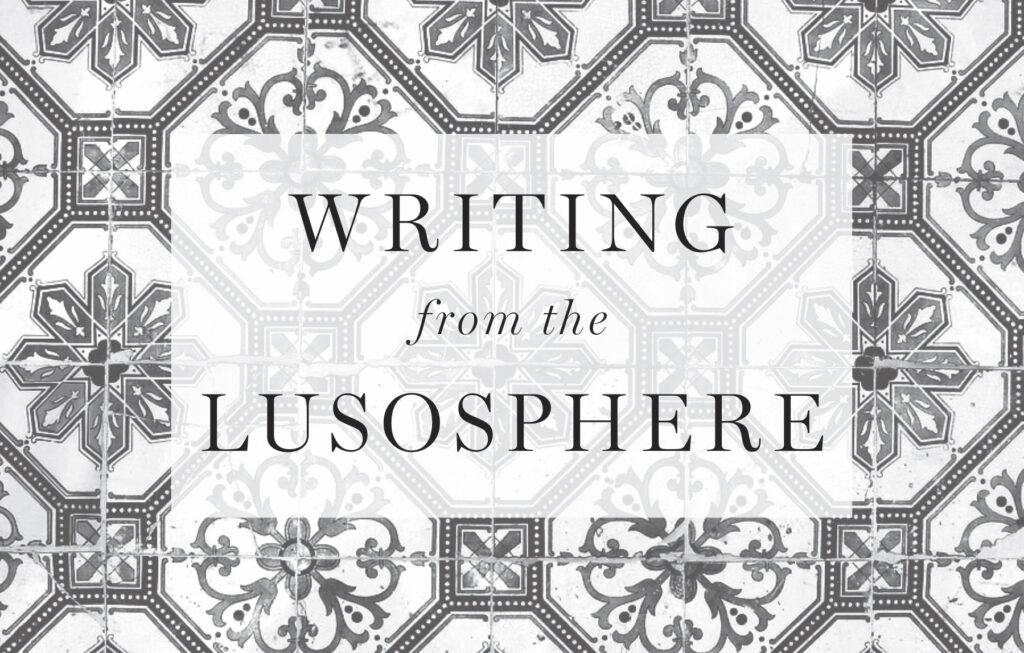If not for the lust of women, there would be no alphabet.
Save for the breaking of traffic rules, there would be
no Cubism; no fractured light scrutinized from subways
or kaleidoscopes in the tool belts of surveyors.
If not for the lust of women, there would be no alphabet.
Save for the breaking of traffic rules, there would be
no Cubism; no fractured light scrutinized from subways
or kaleidoscopes in the tool belts of surveyors.
Translated by JULIA SANCHES
1.
It begins with her saying I’ve never told anyone and ends with me saying Neither have I. And in between, a single sentence on how the love we feel for a child is not necessarily immediate, on how we need time to get to know and fall in love with another being, even though they were once inside us. We talk over the phone; this may never have happened face-to-face, or as we looked one another in the eye.
She had been dead nearly a decade before she sought me out. I was in my late twenties when she first came to me; then, again and again over a period of several years, whenever I came home to visit and always in the middle of the night as I slept in my old room. Before it was mine, it was hers. In the recurring dream or vision, I opened my eyes to darkness and knew I was not alone. She stood in the far corner by the closet, waiting for something. The air between us, a conduit—even from across the room, I felt her body tingling my skin. You don’t always have to see a thing to know it exists.
By LATOYA FAULK
When we identify respect (coming from the root word meaning “to look at”) as one of the dimensions of love, then it becomes clear that looking at ourselves and others means seeing the depths of who we are. Looking into the depths, we often come face-to-face with emotional trauma and woundedness. Throughout our history, African Americans have pounded energy into the struggle to achieve material well-being and status, in part to deny the impact of emotional woundedness. Truthfully, it is easier to acquire material comfort than to acquire love.
—From Salvation: Black People and Love, by bell hooks
Home is not just a house; it’s this yearning for a place where you’re safe, [a place where] nobody’s going to hurt you.
—Toni Morrison, in conversation with Claudia Brodsky at Cornell University on March 7, 2013
By ELIANE MARQUES
Translated by TIFFANY HIGGINS
To Marielle Franco, city councillor, sociologist, and activist in Black and LGBTQI+ movements, who was assassinated along with her driver Anderson Gomes in Estácio in the middle of Rio de Janeiro on March 14, 2018. Those who ordered the crime have not yet been brought to justice.
We are full of bullets from AKs in our heads and in our necks
With stray slugs that enter our bones our backs
We are in the Ecstasy neighborhood
But not dying of love

As part of this fall’s Lusosphere portfolio, we’re publishing accompanying work online. This translation feature highlights the work of two Brazilian poets, Eliane Marques and Leonardo Tonus. Work appears in both the original Portuguese and in English.
“A body on the sand” by LEONARDO TONUS, translated by CAROLYNE WRIGHT
“Federal Intervention” by ELIANE MARQUES, translated by TIFFANY HIGGINS
Poems by RAISA TOLCHINSKY
ON BOXING:
Table of Contents
After training for multiple years with womxn boxers who had the Olympics on their minds, I began to grapple with the dynamics of control I observed within the spaces I encountered. These poems are from a longer series which ask: what does it mean to be a womxn fighter (both inside and outside of the ring) in a world still dominated by men? In what ways is the ring an escape or subversion of the power dynamics encountered outside of it, and in what ways does the ring reinforce or sanction manipulation, harassment, and abuse? Both of these persona poems are composite portraits, representative of the osmosis between bodies and narratives that occurs among close training partners. Though I didn’t have what it took to pursue a fighting career, these poems are a way of writing into the imagined life where I became a boxer instead of a poet & scholar. Through this work I am also asking: how does the poem function as a body? How does the page function as a ring?
—Raisa Tolchinsky
When she sheds
her last moony
red potential
a woman sheds
also obligation
(insert obligation
elsewhere)
fading from
lure to lore.
This piece is an excerpt from The Open Heart Club.

October, 1931. Imagine that you’re riding a southbound train from Montreal to New York City. The woman across the aisle smells strange, a mix of rose water and formaldehyde. She has packages everywhere, on the seat beside her, in the rack above, bags, boxes, some wrapped in twine, some in brown paper. The paper looks stained, as though what’s inside is leaking. She’s got a portfolio full of prints and drawings. She keeps knocking over a big striped umbrella.
A statuette of the Virgin Mary stood guard as my mother and I sipped from glasses of wine cooler on our living room floor. We’d propped our front door open to let in the breeze, leaving only a flimsy screen between our shelter and the world outside. Every once in a while, we’d hear our neighbor calling for her wayward son or the laugh track of a sitcom playing too loudly in the next house over. We’d echo it with giggles of our own, seated on faux mink blankets from the Philippines laid over ceramic tile.